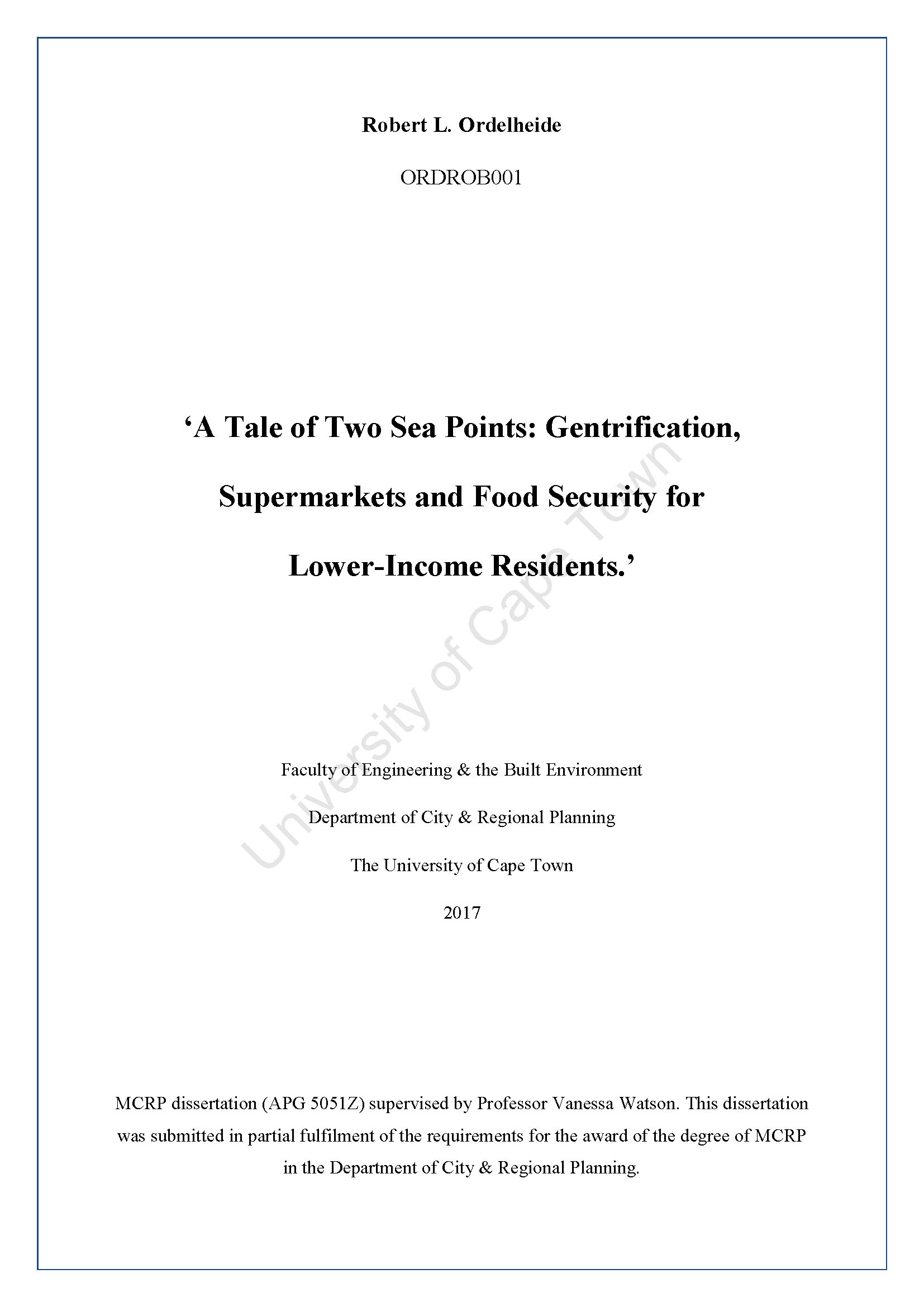– Master Thesis –
This research is founded on the argument that food systems are (and should be) a core mandate for urban planners, particularly as food is connected to many other functions relevant for built-environment professionals. To date, city officials and built-environment professionals in South Africa have adopted a laissez-faire attitude to food systems, simply assuming that for their constituents, food security can be easily solved by supporting urban agriculture projects and allowing the private sector to open new supermarket retail outlets across a city. While the literature on food security in South Africa’s poorer areas is vast, no other published South African studies have considered the ways in which inner city regeneration and commercial supermarket expansion combine to impact the food security of the urban poor. Using a case study approach, this research aims to uncover the food security implications, which arise from gentrification and the growth of the commercial supermarket sector, for middle- and low-income households in Sea Point, an inner-city neighbourhood of Cape Town. This study used techniques including interviews, photography, mapping, foodprice recording, document and archival research, and direct observation. It was discovered that gentrification creates an environment where local food systems are altered by policy prescriptions and improvement projects which, in turn, enable the growth of commercial food retail and high-end food service outlets. This research shows being located close to a supermarket is no guarantee of being able to afford what’s being sold, and this is important because inadequate access to good-quality food has implications for health and human development over time. The experience and knowledge gained from this research has been used to support appropriate food security policy recommendations for the City of Cape Town.

